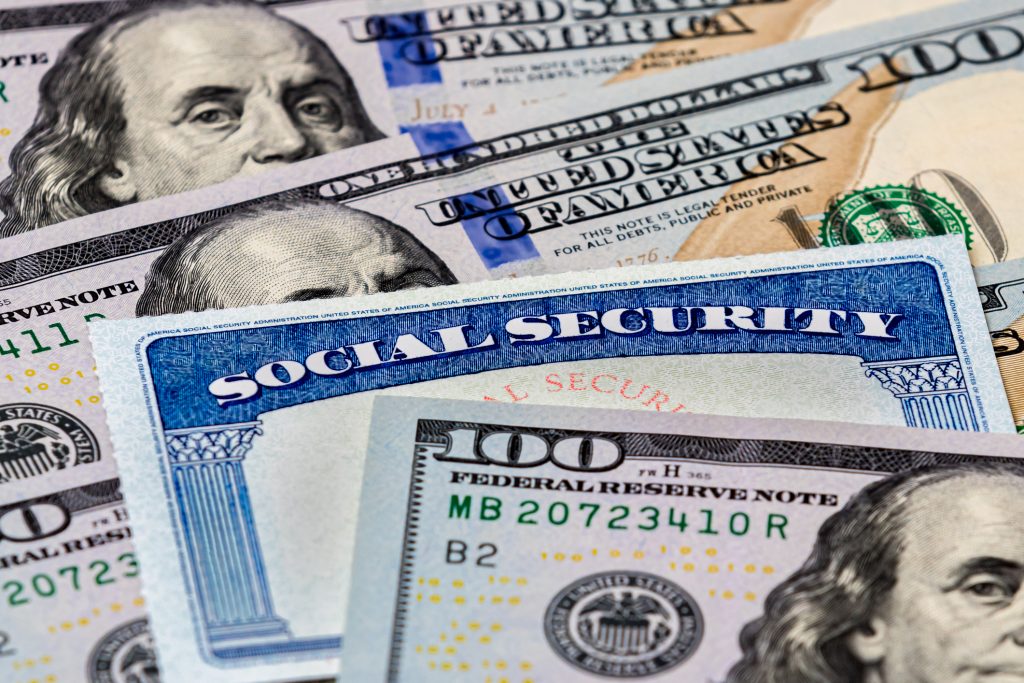Nobody likes hearing the word “recession.” It’s an economic event that comes with a lot of uncertainty, financial challenges, and overall stress for many people.
Recessions negatively impact all types of people, but they can be especially difficult on retirees or those approaching retirement because many rely on fixed income, have less time to recover from investment losses, and could face rising costs for essential services like healthcare.
Where to invest $1,000 right now? Our analyst team just revealed what they believe are the 10 best stocks to buy right now. Learn More »
Luckily, while a recession certainly affects the broader economy, Social Security benefits are stable for the most part. However, that doesn’t mean a recession has zero effect on the program and its future.

Image source: Getty Images.
There won’t be any direct cuts to current benefits
Social Security benefits are shielded from economic events like recessions; that’s one of the most important parts of the program. Unlike stocks or other investments that can fluctuate with the economy, Social Security benefits are stable. If you’re currently receiving benefits, a recession won’t directly reduce your payments, no matter how bad.
Since monthly Social Security retirement benefits became a thing in January 1940, there have been some of the worst recessions in American history. There has been the Great Recession, the 1981 to 1982 recession, the Oil Shock recession, and a handful of others. Social Security benefits remained untouched during each one.
There could be no Social Security COLA
Social Security has an annual COLA to help offset the effects of inflation (in theory). It uses the Consumer Price Index for Urban Wage Earners and Clerical Workers (CPI-W) to determine how much the COLA will be.
Social Security compares inflation data from the CPI-W during the previous year’s third quarter (July, August, and September) to the current year’s third quarter and sets the COLA accordingly.
For example, if the CPI-W third-quarter average increased by 3% from the previous year to the current year, the COLA for the upcoming year will be 3%. If it increases by 5%, the COLA will be 5%. If the CPI-W average remains the same or lowers, there won’t be a COLA for the upcoming year.
If a recession causes inflation to decrease (potentially due to a decrease in demand for goods and services), there could be no COLA for the upcoming year. It doesn’t happen often, but it has happened recently in 2016, 2011, and 2010.
No COLA doesn’t mean lower benefits, but recipients could lose some purchasing power, depending on which areas are and aren’t affected by inflation.
Future Social Security recipients could be impacted by a recession
Although current Social Security recipients are safe, people who haven’t claimed Social Security yet could be impacted by a recession. This is particularly true for someone who experiences unemployment or lowered wages.
Social Security calculates monthly benefits using your lifetime earnings. It takes the 35 years when your earnings were the highest and applies a formula that determines your monthly benefit.
If a recession causes you to lose your job or experience a drastic pay cut, your lifetime earnings average could drop, lowering the amount you receive in Social Security benefits.
For younger workers, it may not have an impact because there could be enough time to earn more in your career and replace the year(s) of no or lower income in your benefits calculation. However, it could have a lasting effect if you’re nearing retirement.
Recessions can put a strain on the Social Security system
The Social Security program is funded through people paying Social Security payroll taxes.
If a recession leads to large unemployment, fewer people will be paying payroll taxes and contributing to the system. This could deplete the Social Security Trust Funds faster than intended and put future benefits at risk.
I wouldn’t expect benefits to be eliminated altogether, but if enough strain is put on the system, the government would have to take action to ensure the program remains the financial lifeline for retirees that it is today.
The $22,924 Social Security bonus most retirees completely overlook
If you’re like most Americans, you’re a few years (or more) behind on your retirement savings. But a handful of little-known “Social Security secrets” could help ensure a boost in your retirement income. For example: one easy trick could pay you as much as $22,924 more… each year! Once you learn how to maximize your Social Security benefits, we think you could retire confidently with the peace of mind we’re all after. Simply click here to discover how to learn more about these strategies.
View the “Social Security secrets” »
The Motley Fool has a disclosure policy.
 benzinga.com
benzinga.com fool.com
fool.com



